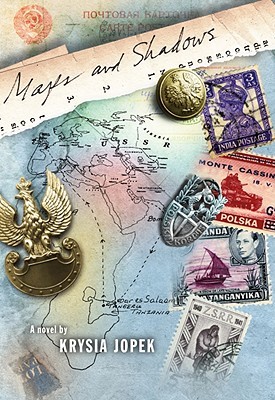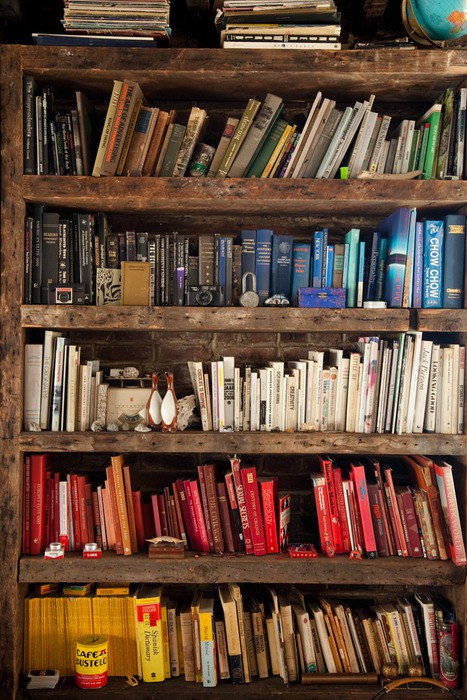For years and years I have "saved" quotes. In journals, Word documents, on napkins, whatever. I would jot down passages and sentences that struck my fancy. And there it would be. Sitting there. Not being read by anyone and honestly, just cluttering shit up."Life itself is a quotation." Jorge Luis Borges
Well, now I have a BLOG. Finally, somewhere to harness all of those passages, sentences, thoughts, jokes, statements, that I carry around. I have decided that on the last day of every month, I'll have a quotes round-up. Now instead of me saying to myself, "Wow, that was lovely/horrifying/interesting," everyone can say it!
Happy Birthday!
Ayn Rand, February 2
In this world, either you're virtuous or you enjoy yourself. Not both, lady, not both.
But I don't think of you.- Howard RoarkJames Joyce, February 2
But my body was like a harp and her words and gestures were like fingers running upon the wires.Gertrude Stein (Pittsburgh native!), February 3
If you can't say anything nice about anyone else, come sit next to me.
You look ridiculous if you dance
You look ridiculous if you don't dance
So you might as well
dance.
William S. Burroughs, February 5
There is no intensity of love or feeling that does not involve the risk of crippling hurt. It is a duty to take this risk, to love and feel without defense or reserve.Charles Dickens, February 7
Have a heart that never hardens, and a temper that never tires, and a touch that never hurts.Boris Pasternak, February 10
I don't think I could love you so much if you had nothing to complain of and nothing to regret. I don't like people who have never fallen or stumbled. Their virtue is lifeless and of little value. Life hasn't revealed it's beauty to them.Anais Nin, February 21
I'm awaiting a lover. I have to be rent and pulled apart and live according to the demons and the imagination in me. I'm restless. Things are calling me away. My hair is being pulled by the stars again.Edward Gorey, February 22
John Steinbeck, February 27
I have always lived violently, drunk hugely, eaten too much or not at all, slept around the clock or missed two nights of sleeping, worked too hard and too long in glory, or slobbed for a time in utter laziness. I've lifted, pulled, chopped, climbed, made love with joy and taken my hangovers as a consequence, not as a punishment.Dog Boy, Eva Hornung
She was motherly to the puppies: firm and distant and bossy. He wondered what dog milk tasted like, and edged closer. His stomach gurgled. She watched him steadily. The warmth of the nest, warmth of the squirming bodies, rose to heat his face. His dropped to his hands and knees, to his belly and wriggled towards her. She growled, steady and low, and he stopped. Then he inced closer, again, eyes averted. She was growling softly when he reaches her flank and the full heat of the puppies. He curled himself slowly into that warm bed and pulled off his freezing mittens.
He could smell the puppies now, warm and spicy-milky, sucking, sucking. He could smell her, too, stinky and comforting. He didn't move except for an involuntary shivering. She growling on but didn't move either. This growl was for him. But it was a mind your manners growl, not a get out of my sight growl and he waited, minding his manners. Then she stopped and began licking her puppies. She reached over and cleaned his face too. Her tongue was warm and wet, sweet and sour. He licked his lips and tasted her spit and the faint taste of milk.Snowdrops, A.D. Miller
"Snowdrop. Your friend is a snowdrop." That's what the Russians call them, he told me- the bodies that float up into the light in the thaw. Drunks most of them, and homeless people who just give up and lie down into the whiteness, and murder victims hidden in the drifts by their killers.
Snowdrops: the badness that is already there, always there and very close, but which you somehow manage not to see. The sins the winter hides, sometimes forever.
Of course, when I think about it there is guilt, there is some guilt. But most of all there is loss. That is what really hurts. I miss the toasts and the snow. I miss the rush of neon on the Bulvar in the middle of the night. I miss Masha. I miss Moscow.Travels in Siberia, Ian Frazier
My own theory about Russia and the Mongols is more psychological or fanciful, and addresses the questions I said I had stopped thinking about but actually can't help returning to: namely, how Russia can be so great and so horrible simultaneously. I think one answer is that when other countries were in their beginnings, developing institutions of governments and markets and a middle class and so on, Russia was beset with Mongols. That is, Russia can be thought of as an abused country; one has to make allowances for her because she was badly mistreated in her childhood by the Mongols.
In America we love roads. To be "on the road" is to be happy and alive and free. Whatever lonesomeness the road implies is also a blankness that soon will be filled with possibility. A road leading to the horizon almost always signifies a hopeful vista for American. "Riding off into the sunset" has always been our happy ending. But I could find no happy-ending vista here, only the opposite. This had also been called the Convicts' Road or the Exiles' Road. Not only was it long and lonesome, but it ran permanently in the wrong direction, from the exiles' point of view. Longing and melancholy seemed to have worked themselves into the very soil; the old road and the land around it seemed downcast, as if they'd had their feelings hurt by how much the people passing by did not want to be here.
Happy March!







































